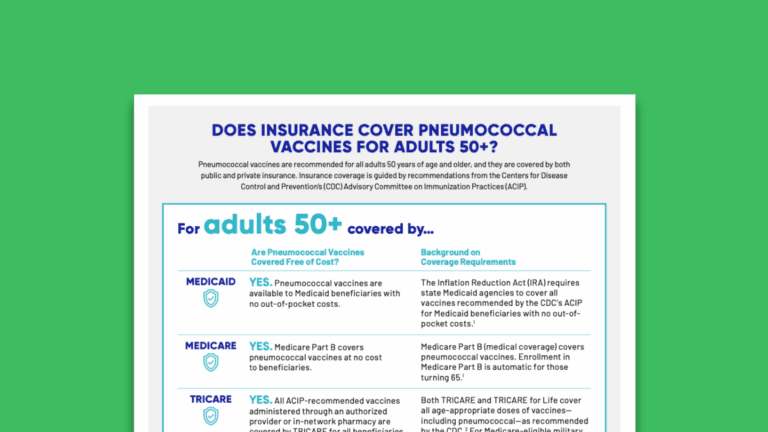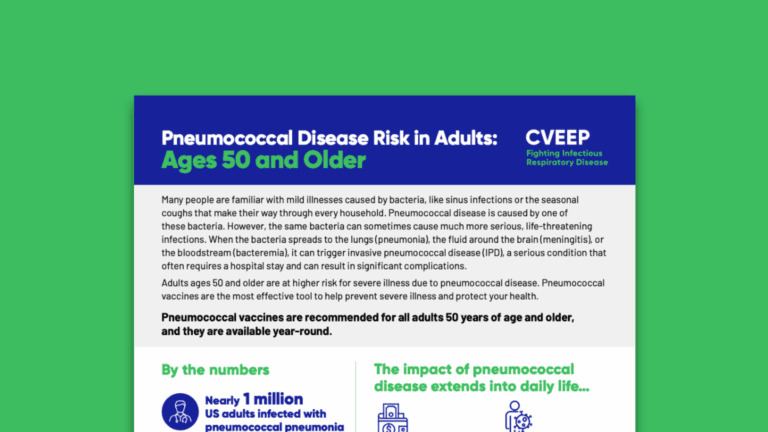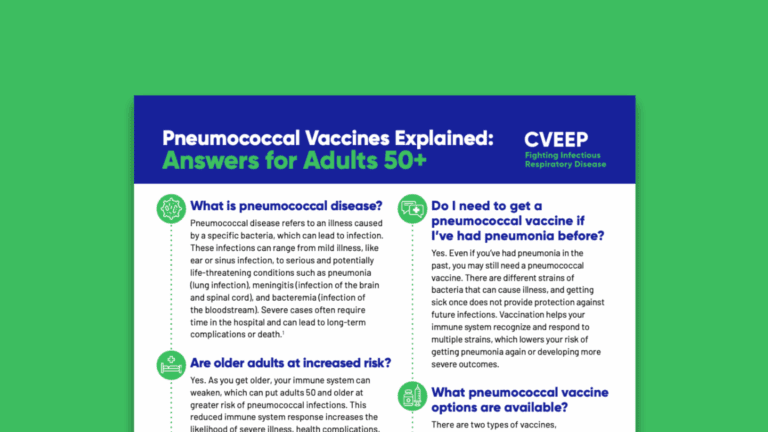Vaccines: Cost & Coverage
Need vaccine information?
Check out the resources below.
Visit
Visit
Infectious respiratory diseases are a threat to public health. Vaccines to help prevent them are covered at no cost for most people.
Vaccines are the best way to protect against illness, especially severe illness, from infectious respiratory diseases. Nearly all private and public health insurance plans cover all vaccines recommended by the Centers for Disease Control and Prevention’s (CDC’s) Advisory Committee on Immunization Practices (ACIP) free of cost.
How are vaccines covered by insurance?
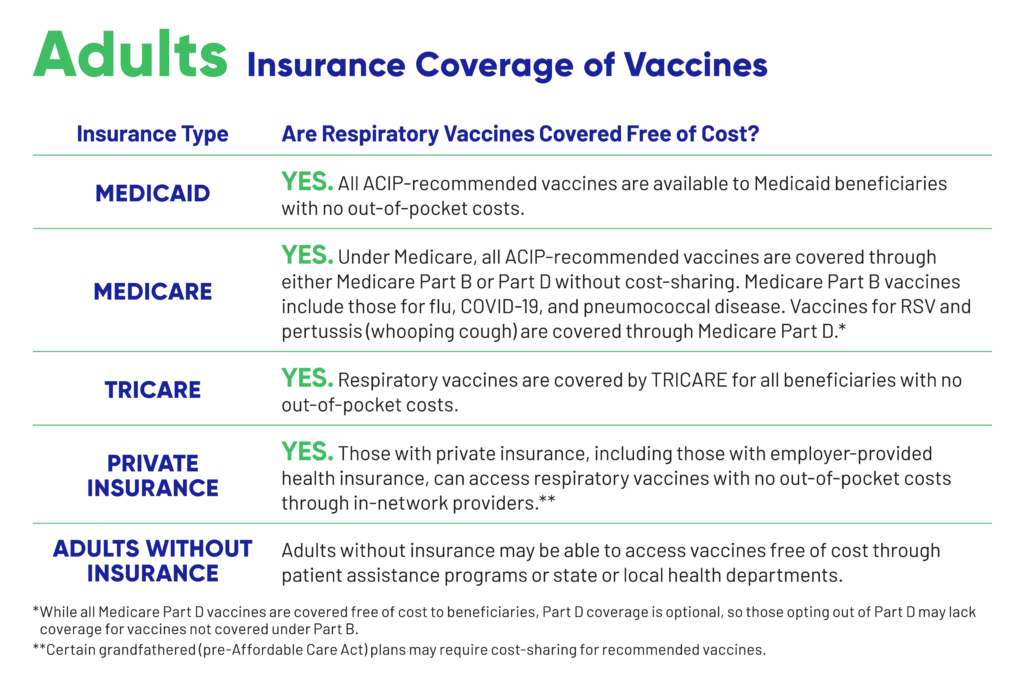
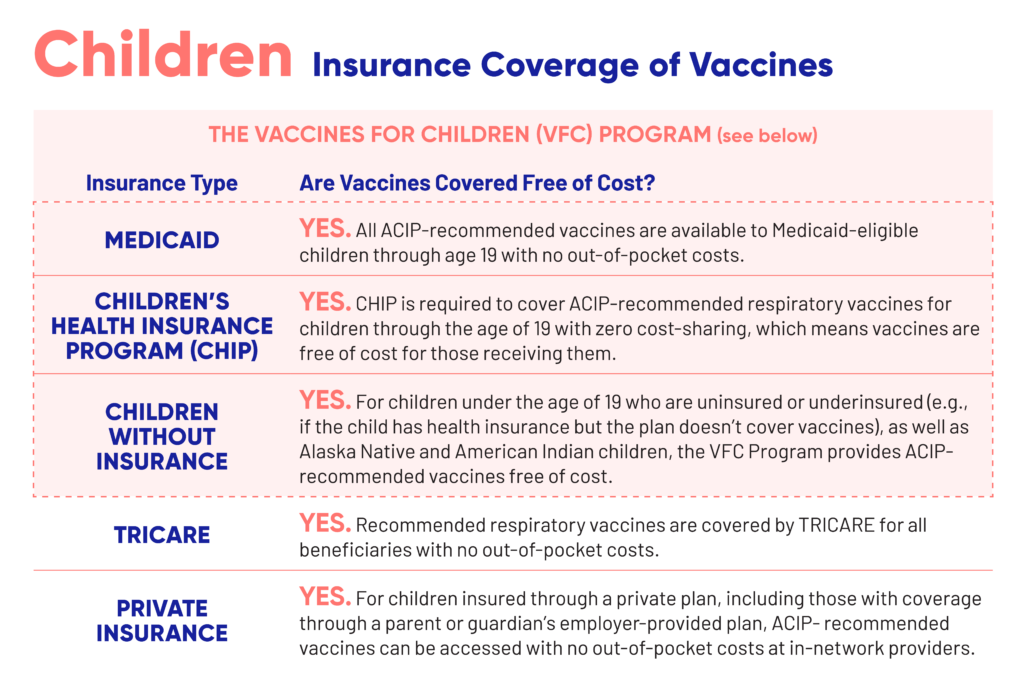
What is the Vaccines for Children program?
CDC’s Vaccines for Children (VFC) program is a federally funded program that provides vaccines for children who are uninsured or underinsured, as well as American Indian and Alaska Native children. The program supplies over 50% of vaccines for children in the U.S. In addition to providing vaccines free of cost for children without insurance, a child may also receive a vaccine through the VFC program if they are covered by Medicaid or the Children’s Health Insurance Program (CHIP).
Children who are uninsured or children who otherwise might not be vaccinated because of inability to pay can access vaccines free of cost by visiting a provider enrolled in the VFC program or through a public health clinic, a federally qualified health center (FQHC), or a rural health clinic. Pregnant women enrolled in VFC and Medicaid are not charged for recommended vaccines during pregnancy. While some providers charge a vaccine administration fee, an eligible child cannot be denied a vaccine even if their parent or guardian is not able to pay.
